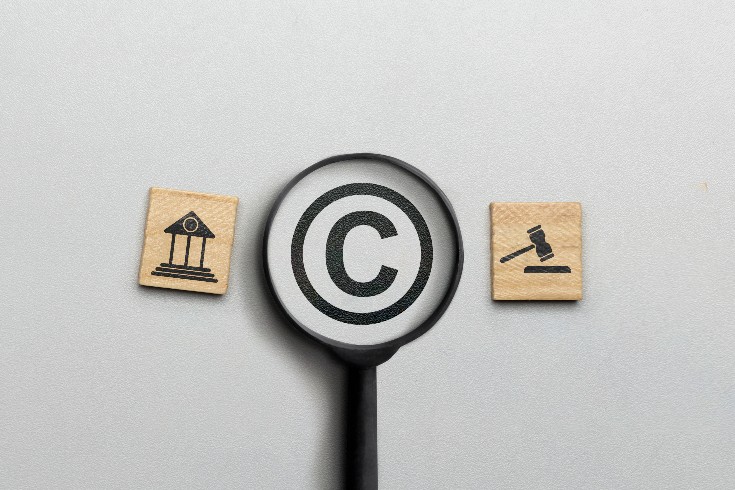What is Fundraising through Stock Acquisition Rights in Seed Investment by J-KISS (Japanese KISS)

For startups that require substantial initial costs such as system development, the ability to raise funds can greatly influence the company’s future growth. In particular, there is a mechanism designed in Japan, based on investment cases in the United States, for startups in the so-called seed stage to easily and quickly raise funds. This mechanism is known as the Japanese-KISS (J-KISS). Under J-KISS, what investors acquire are not shares, but rather Stock Acquisition Rights. Because there are fewer matters to be decided and procedures to be followed at the investment stage than when issuing shares, it allows for rapid fundraising. Due to these advantages, further proliferation of J-KISS is expected in the future. Therefore, we will explain what J-KISS is and the mechanism of fundraising through J-KISS.
What is J-KISS?

J-KISS is an acronym for Keep It Simple Security. It is a fundraising method designed specifically for startups in the so-called seed stage to easily and quickly raise funds. Coral Capital (formerly 500 Startups Japan) has collaborated with experts, including lawyers, to create and freely publish a template. In conventional fundraising, investment contracts tend to be lengthy, and receiving investment required significant costs and time, including attorney fees for contract negotiations and legal checks. With J-KISS, you can conclude an investment contract by simply deciding on about two items using the pre-published template. In this regard, it can be said that J-KISS is a fundraising method that meets the needs of seed-stage startups who do not want to spend time and money.
The Background of J-KISS’s Inception
Traditionally, when startups receive investments from venture capitals and the like, the common method was to have the investors acquire shares. However, there was a problem in that it was difficult to calculate the appropriate share price due to the difficulty of valuing the company immediately after its establishment. As a result, the company’s value may be conservatively evaluated at the time of investment, posing a risk of handing over shares at a considerably lower price than the original. Giving shares is legally equivalent to transferring part of the management rights, and it was actually observed that having investors hold shares at a lower price than the original when the company has grown beyond the seed stage can hinder the company’s growth. J-KISS was born from the perspective of solving these problems in fundraising for startups.
Fundraising Mechanism through J-KISS

Investment Target is Stock Acquisition Rights
The most significant feature of fundraising through J-KISS is that the investors acquire not the so-called shares, but Stock Acquisition Rights. Originally, in the United States, convertible bonds were used for seed-stage startup investments. However, convertible bonds are a form of debt finance, similar to borrowing. Therefore, on the balance sheet of the startup receiving the investment, convertible bonds are recorded as liabilities. Seed-stage startups often have little equity, so the recording of convertible bonds as liabilities can easily lead to insolvency. Insolvency can make it difficult not only to borrow from financial institutions but also to do business with other companies, which is generally undesirable. On the other hand, if it is a Stock Acquisition Rights, it will not be recorded as a liability on the balance sheet, so there will be no problem of insolvency.
On the other hand, for seed-stage startups, there are problems with allowing investors to hold shares. As mentioned earlier, it is difficult to evaluate the value of the company at the seed stage, and especially for startups, there is a desire to avoid valuation at this stage. If it is a share, you need to determine the value of the share at the time of investment, but in the case of new share warrants, at the time of investment, you only need to set the investment amount as the value of the new share warrants.
Therefore, at the time of investment, there is no need to determine the number of shares that the investor will acquire, so no valuation is required. In J-KISS, after receiving an investment for new share warrants in this way, when the startup exits the seed stage and enters the growth stage and raises funds through the issuance of shares in Series A, the investor who has acquired the new share warrants will acquire shares at a certain discount. In this way, with J-KISS, the investment target is not shares but Stock Acquisition Rights, so the valuation can be postponed until Series A. In addition to the above, the advantages of J-KISS include the ability to save on fundraising costs because the registration and license tax is uniform when the investment target is Stock Acquisition Rights, and the fact that no changes to the articles of incorporation are required for the issuance of new share warrants, so there is no administrative hassle.
Method of Calculating the Conversion Price of Stock Acquisition Rights
The number of shares that the Stock Acquisition Rights invested in the seed stage correspond to is not determined at the time of investment. The number of shares held by seed-stage investors is determined when new shares are issued in Series A, and the investor exercises the Stock Acquisition Rights. In the J-KISS template, Series A is defined as a fundraising of 100 million yen or more by shares, and it is assumed that about 1 to 1.5 years have passed from the seed investment. The acquisition price of the shares when the investor exercises the Stock Acquisition Rights is called the conversion price. The method of calculating this conversion price is predetermined in the J-KISS investment contract, so once the share price in Series A fundraising is determined, the conversion price is unambiguously determined.
Investors in J-KISS are taking risks by investing at a considerably early stage, so they need to be able to acquire shares at a more advantageous price than the investors who appear in Series A. Therefore, the conversion price of J-KISS is set at a certain discount, such as 20% off the share price in Series A fundraising, in the investment contract. However, with just a discount, the more the share price rises in Series A as the startup’s business succeeds, the fewer shares the J-KISS investor can acquire, and hence the lower the shareholding ratio. This would cause J-KISS investors to lose the incentive to support the development of the startup’s business.
Therefore, in addition to the discount, a valuation cap can also be used to calculate the conversion price. That is, a valuation cap is set as the upper limit of the valuation, and the option to set the amount obtained by dividing the upper limit amount by the number of issued shares just before Series A as the conversion price is given to J-KISS investors. By using both a discount and a valuation cap, J-KISS investors can choose whichever is more advantageous.
Investment Scenarios after Fundraising through J-KISS

From the investor’s side, it is important to know what scenarios are planned after investing through J-KISS. Especially seed-stage investments are generally high-risk, and there is a wide range of scenarios for the company’s business development after the investment. J-KISS assumes the following three scenarios and prepares ways for investors to recover their investment amount in each case.
- Successful fundraising in Series A
- Acquisition before Series A fundraising
- Neither 1. nor 2. occurs within a certain period after seed investment
1. is the scenario that proceeds as expected, and as mentioned earlier, the Stock Acquisition Rights are converted into shares at the stage of Series A fundraising.
2. is a scenario where the company is acquired by another company before Series A. In this case, J-KISS stipulates that the investor will be refunded twice the investment amount. At the time of acquisition, the startup has increased its corporate value by using the funds provided by the J-KISS investor, so the founder of the startup will gain a profit exceeding his own investment amount through the acquisition. Therefore, in balance with this, it can be said that J-KISS investors should also be allowed to gain profits commensurate with the increased corporate value. For this reason, the J-KISS investment contract template stipulates that if an acquisition occurs, the investor will be refunded twice the investment amount.
Also, as in 3., it is of course assumed that even after a certain period of time has passed, the business development does not go well and the company does not get on the growth track. In this case, if neither 1. nor 2. occurs at the time of expiration of a certain period (J-KISS assumes 18 months or more) that should have entered Series A, it is stipulated that it can be converted into common stock. The conversion price at this time is calculated by the valuation cap explained above.
Summary: Consult Lawyers in Fundraising through Stock Acquisition Rights Seed Investment
In order to understand the mechanism of the Japanese KISS (J-KISS), it is necessary to study the structure of shares as defined in the Japanese Companies Act and the overall finance of companies. While such studies tend to be postponed in the startup phase, finance is indispensable knowledge for a startup to grow smoothly. Therefore, if you are considering fundraising, we recommend deepening your understanding in consultation with professionals such as lawyers in advance.
Category: General Corporate
Tag: General CorporateM&A





















